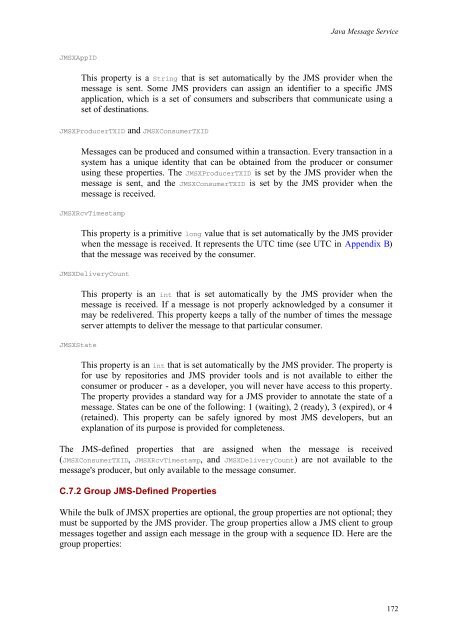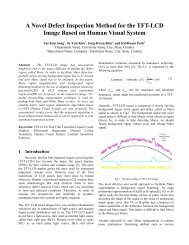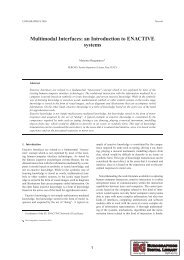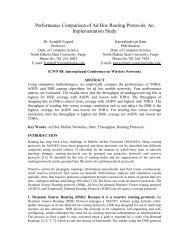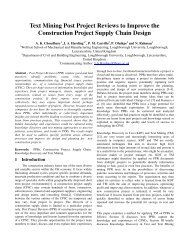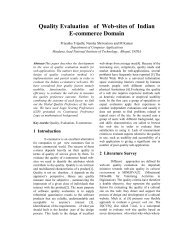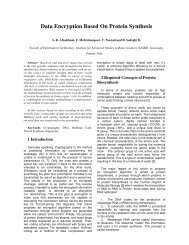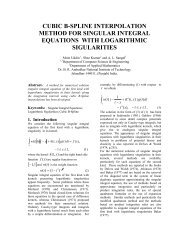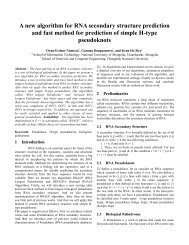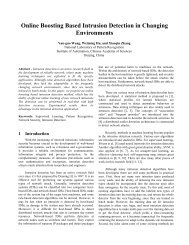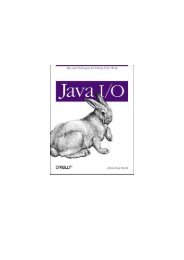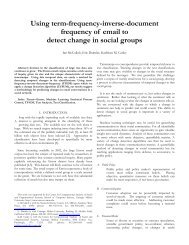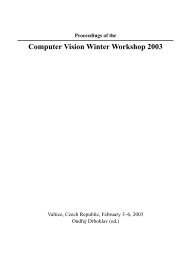O'Reilly - Java Message Service
O'Reilly - Java Message Service
O'Reilly - Java Message Service
You also want an ePaper? Increase the reach of your titles
YUMPU automatically turns print PDFs into web optimized ePapers that Google loves.
JMSXAppID<br />
<strong>Java</strong> <strong>Message</strong> <strong>Service</strong><br />
This property is a String that is set automatically by the JMS provider when the<br />
message is sent. Some JMS providers can assign an identifier to a specific JMS<br />
application, which is a set of consumers and subscribers that communicate using a<br />
set of destinations.<br />
JMSXProducerTXID and JMSXConsumerTXID<br />
<strong>Message</strong>s can be produced and consumed within a transaction. Every transaction in a<br />
system has a unique identity that can be obtained from the producer or consumer<br />
using these properties. The JMSXProducerTXID is set by the JMS provider when the<br />
message is sent, and the JMSXConsumerTXID is set by the JMS provider when the<br />
message is received.<br />
JMSXRcvTimestamp<br />
This property is a primitive long value that is set automatically by the JMS provider<br />
when the message is received. It represents the UTC time (see UTC in Appendix B)<br />
that the message was received by the consumer.<br />
JMSXDeliveryCount<br />
JMSXState<br />
This property is an int that is set automatically by the JMS provider when the<br />
message is received. If a message is not properly acknowledged by a consumer it<br />
may be redelivered. This property keeps a tally of the number of times the message<br />
server attempts to deliver the message to that particular consumer.<br />
This property is an int that is set automatically by the JMS provider. The property is<br />
for use by repositories and JMS provider tools and is not available to either the<br />
consumer or producer - as a developer, you will never have access to this property.<br />
The property provides a standard way for a JMS provider to annotate the state of a<br />
message. States can be one of the following: 1 (waiting), 2 (ready), 3 (expired), or 4<br />
(retained). This property can be safely ignored by most JMS developers, but an<br />
explanation of its purpose is provided for completeness.<br />
The JMS-defined properties that are assigned when the message is received<br />
(JMSXConsumerTXID, JMSXRcvTimestamp, and JMSXDeliveryCount) are not available to the<br />
message's producer, but only available to the message consumer.<br />
C.7.2 Group JMS-Defined Properties<br />
While the bulk of JMSX properties are optional, the group properties are not optional; they<br />
must be supported by the JMS provider. The group properties allow a JMS client to group<br />
messages together and assign each message in the group with a sequence ID. Here are the<br />
group properties:<br />
172


